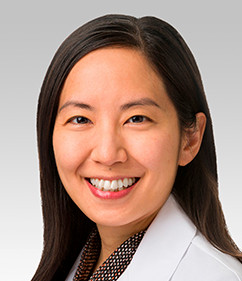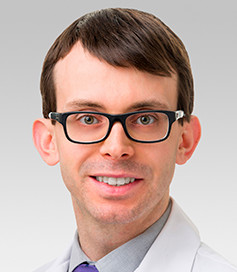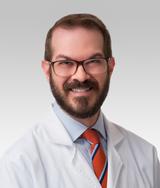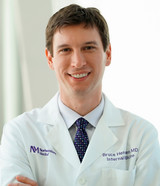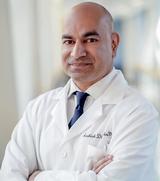Medicine PSTP
The Department of Medicine’s Physician-Scientist Training Program at the Feinberg School of Medicine focuses on the transition period from graduation with an MD or MD-PhD to appointment to a full-time academic position as a physician-scientist. Beyond training in the Categorical Internal Medicine Training Program at the McGaw Medical Center of Northwestern University and the Northwestern University Feinberg School of Medicine, trainees accepted into the program will be guaranteed a position in the fellowship program of any of the 12 clinical divisions in the Department of Medicine.
current & past scholars learn about our departmental research
Program Details
Eligibility
This program is designed for individuals who are entering internship with either a combined MD-PhD degree or an MD degree with a record of intensive research experience. Students at non-U.S. medical schools, and international students at U.S. medical schools, are welcome to apply. Successful applicants will exhibit commitment to a career in academic medicine as a physician-scientist.
Program Structure
Clinical Training - Internal Medicine
Trainees participate in the American Board of Internal Medicine (ABIM) Research Pathway, which allows completion of internal medicine training in two years and initiation of subspecialty fellowship training during the PGY-3 year. Training at Northwestern provides the opportunity to care for a diverse patient base and interact with our numerous and talented clinical faculty members. Clinical rotations will encompass both inpatient and outpatient rotations at Northwestern Memorial Hospital and the Jesse Brown VA Medical Center.
Clinical Training - Clinical Fellowship
Applicants will fulfill the required clinical fellowship training as determined by their subspecialty board. This is typically one to two year of intensive clinical training with maintenance of a subspecialty clinic during subsequent years.
Research Training
Research training can be completed under the mentorship of any faculty member at Northwestern University. Applicants will be encouraged to interview potential research advisers before or early during their clinical fellowship training. Final selection of a research adviser will be made with the assistance of the program leadership. During research training, an advising committee consisting of the research advisor, divisional leadership and departmental leadership will be formed to assess the trainee and ensure progress toward independence.
Northwestern University offers a broad range of potential research advisers to PSTP participants across the Northwestern Medicine Chicago Campus and the Northwestern University Evanston Campus. All of the divisions within the Department of Medicine are engaged in innovative research with an emphasis on interdisciplinary projects, including collaborations with faculty in the schools of engineering, social sciences and more. The Department of Medicine has the most funding of any department or center at the university with more than 500 awards totaling more than $110 million. To learn more about the research interests of Department of Medicine faculty and visit individual faculty profiles, check out the Driskill Graduate Program in Life Sciences website.
Didactic Training/Seminars
Depending on the needs and interests of trainees, additional didactic training is available during years three through six of the program. Trainees are able to audit courses offered by the Driskill Graduate Program in Life Sciences.
Beyond participation in the numerous seminar series available through the medical school, trainees will participate in activities designed specifically for the PSTP.
Financial Support
Trainees in the Department of Medicine’s PSTP are guaranteed support for their clinical training years and three years of research training. They are also guaranteed a position in the fellowship program of any of the 12 clinical divisions in the Department of Medicine. Trainees in their research years will be encouraged, with the support of their research mentor, to seek outside support to help facilitate their transition to independence. In addition to salary support for postgraduate years one through six as stipulated by the Office of Graduate Medical Education, the following financial support will be provided to trainees:
|
Year 1 |
Internship |
$4,000 |
Support for travel to a national meeting, journals, etc. |
|
|
Year 2 |
Junior Residency |
$4,000 |
Support for travel to a national meeting, journals, etc. |
|
|
Year 3 |
Clinical Fellowship |
$11,000 |
$7,000 to support for a computer and software, travel to a national meeting, journals, etc. |
$4,000 to supplement salary |
|
Year 4-6* |
Research |
$20,000 |
$5,000 to support travel and other expenses |
$15,000 to supplement salary |
|
Year 7** |
Research |
$20,000 |
$5,000 to support travel and other expenses |
$15,000 to supplement salary |
*Year 5 is the final year of the PSTP for General Internal Medicine. PGY5 positions may be at the clinical instructor level with supplemental support included as part of instructor level compensation.
*Year 6 is the final year of the PSTP for Allergy/Immunology, Endocrinology, Geriatrics, Palliative Care, Infectious Disease, Nephrology and Rheumatology. PGY6 positions may be at the clinical instructor level with supplemental support included as part of instructor level compensation.
**Year 7 is the final year for Cardiology, Critical Care/Pulmonary, Hematology/Oncology, and Gastroenterology/Hepatology. For these subspecialties, PGY7 positions may be at the clinical instructor level with supplemental support included as part of instructor-level compensation.
Application Process
Applicants should apply to the Physician-Scientist Training Program (PSTP, 2247140C1) of the McGaw Medical Center of Northwestern University through Electronic Residency Application Service. Applicants may also apply to the Categorical Internal Medicine track (2247140C0) if they would like to be considered for the traditional three-year residency program.
In addition to their application through ERAS, applicants should submit the online PSTP application. If not already included in ERAS, applicants should also submit a letter of recommendation from their principal research mentor. Additional letters to support an applicant and their research potential may also be submitted if desired.
** The deadline to submit an application is October 3, 2025 at 11:59 PM Central Time. Applications received after the deadline unfortunately will not be honored. **
